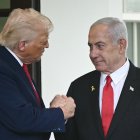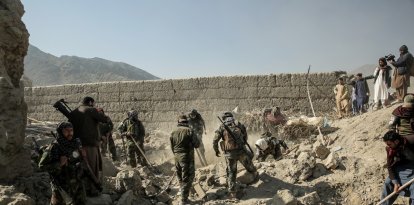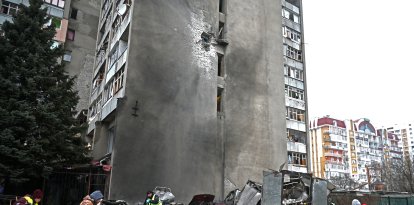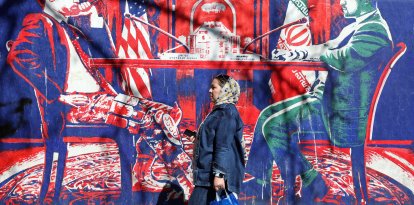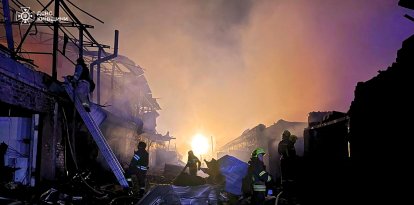Ceasefire in the Middle East: 'Israel will not stand idly by'
In an exclusive conversation with VOZ, prestigious Israeli journalist and writer Ben-Dror Yemini analyzes the damage caused by Israel to the Iranian nuclear program, criticizes the support of the Western left to terrorist groups and discusses the prospects of the Middle East after the conflict between the Jewish state and Iran.
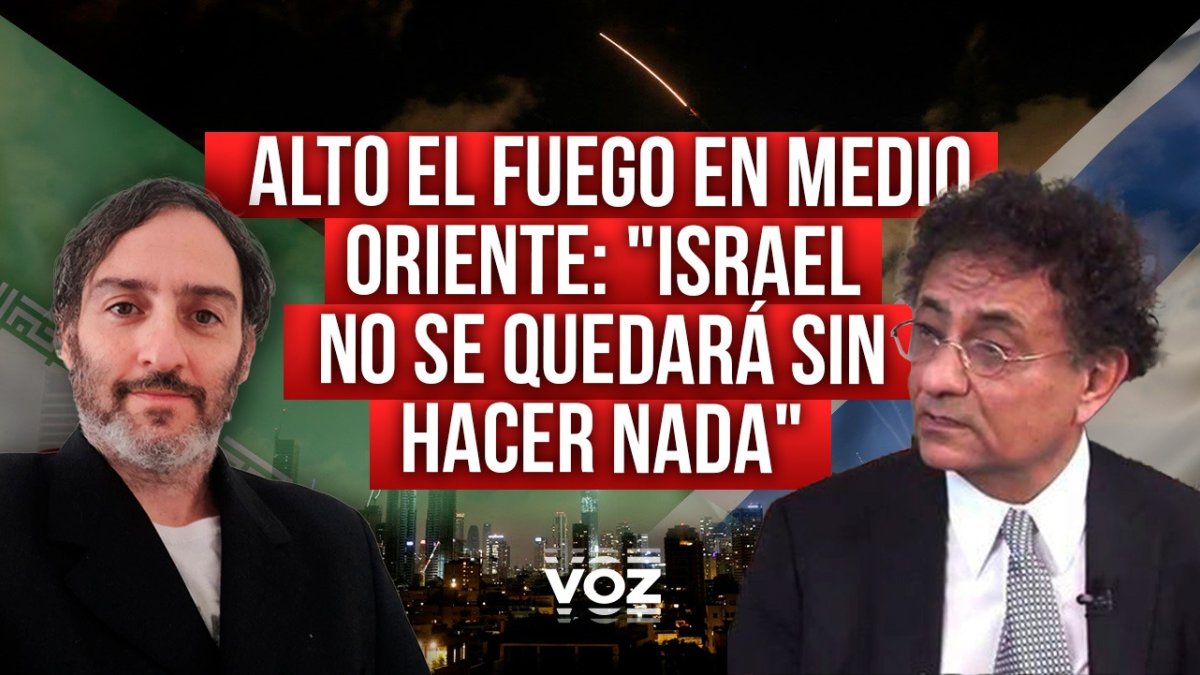
Interview with Israeli journalist and writer Ben-Dror Yemini.
Prestigious Israeli journalist and writer Ben-Dror Yemini, author of the book "The Industry of Lies," spoke exclusively with VOZ after the recent 12-day war between Israel and Iran. With incisive analysis, Yemini addressed, among other issues, the damage done by the Jewish state to the Iranian nuclear program, the ideology of the Islamic regime, the war that still continues in Gaza, the future of the Middle East and the distorted perception of Israel in the West, condemning what he considers an anti-Western "brainwashing" in universities and media.
A blow to the nuclear program, but not to the ideology
Yemini stressed that the Jewish state succeeded in greatly damaging the Iranian nuclear program. "Certainly, Israel dealt a significant blow to Iran's nuclear facilities, but it did not destroy the ideology," he said.
According to the journalist, the Iranian regime possesses an ideology which he described as "genocidal antisemitism." Yemini indicated that the Iranian government maintains a clear objective: "To eliminate the State of Israel." This ideological purpose, he said, is difficult to eradicate without regime change, something that was not achieved in the conflict.
The writer lamented that the solution cannot come from outside interventions, citing historical failures in Iraq and Afghanistan. "It has to come from the people themselves," he said, referring to the people of Iran, noting that "according to all the experts, the majority of Iranians are opposed to the regime" and want democracy. However, he stressed that the current government has squandered resources on its ideological agenda. "They have squandered half a trillion dollars. A huge sum ... because the ideological goal is much more important than interests such as education, welfare or improving the lives of people in Iran," he said.
Israel's surveillance and the role of the Mossad
Faced with the possibility of Iran rebuilding its nuclear program, Yemini emphasized the Jewish state's ability to remain vigilant: "Israel will not stand idly by. It will continue to do what it has done so far." He highlighted the effectiveness of Israeli intelligence, particularly the Mossad, which operated with surgical precision during the conflict.
"We saw Mossad agents operating inside Iran, launching drones from inside Iran. It looks like a scene from a movie, but it happened," he said. He also stressed the precision of the operations: "The civilian casualty rate was close to zero. The attacks were only against regime institutions." Moreover, Yemini expressed confidence that this surveillance will continue to prevent "us from reaching a situation we don't want."
The paradox of the West and "brainwashing"
Yemini sharply criticized the prevailing narrative in the West, particularly in U.S. universities, where there is a perceived anti-Western and anti-Zionist indoctrination.
"There is a terrible and frightening brainwashing against the West itself, against Israel, against themselves," he said. This phenomenon, he said, leads to protests that condemn the Jewish state while ignoring the main victims of radical Islam. He noted that these are "Muslims. Not Americans, not Europeans, not Israelis."
The journalist questioned the logic of those who support the Palestinian terrorist group Hamas or justify actions such as the Oct. 7 massacre: "Have you people gone crazy? What are you doing, for God's sake?" the journalist expressed in a blunt message to Western students demonstrating against the West and Israel.
For Yemini, this reflects an anti-Western education that has permeated for two decades, leading to a misperception of Israel as a "colonialist" power. "It's not true. My grandparents, who came from Yemen more than a hundred years ago, fled; they were not colonialists. The Jews who came from Russia and Poland were refugees, persecuted; they were not colonialists," he stressed.
Radical Islam generates "destruction" and "bloodshed"
Yemini pointed out that radical Islam, whether Shiite or Sunni, generates "destruction, ruin, bloodshed" wherever it is found, as it did in places like Lebanon, Yemen or the Sahel region countries, among others.
"Everywhere in the world where there is radical Islam, there is destruction. ... Yemen is a country where, according to the U.N., half of the population is starving," he said. In this context, he criticized Hamas, whose ideology of "genocidal antisemitism" perpetuates the suffering of Palestinians, who are "victims of Hamas, just as in Yemen they are victims of the Houthis and Iran."
Despite Israel's military achievements against Iran, Yemini lamented that they have not impacted the situation in Gaza: "It doesn't affect it. That's the bad thing, for the simple reason that it's not rational. It's not like now Hamas will say, 'Wow, look at Israel as a regional superpower, ... we better calm down.'" For him, confronting the terrorist group requires a different strategy, as the Jewish state has proven to be weaker "against a terrorist organization operating as a guerrilla group" than it was against Iran.
Cautious optimism for the Abraham Accords
Despite the challenges, Yemini was optimistic about progress in relations with the Arab world. "Many Israelis and Jews feel much better walking in countries like the United Arab Emirates and Bahrain than in Paris and London," he said, noting that Arab countries confront radical Islam, while in the West "they are afraid of them and welcome them."
On the Abraham Accords, he expressed hope that more countries, such as Saudi Arabia, will join. "I hope that Israel will be a little smarter to extend the Abraham Accords ... and we will be in a situation where Israel will have peace with much of the Arab world," he said.
A call for reflection
Yemini closed with a clear message: the world must recognize who the real victims and the real aggressors are. "We want the Palestinians to do well; for them to do well, they need to protest ... against jihad, against Iran, against the radicals, and not form a coalition with the radicals," he concluded. His analysis invites to question the dominant narratives and support a shift towards peace and rationality in the region.





